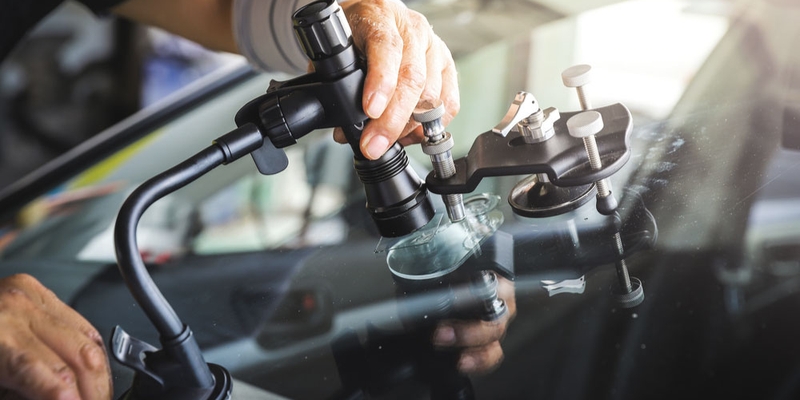
If you are not redirected within 30 seconds, please click here to continue.
Samedi: 10h – 16h HAE

If you are not redirected within 30 seconds, please click here to continue.
If you are not redirected within 30 seconds, please click here to continue.
Is a Windshield Crack Covered by Your Car Insurance?

You’ve likely been driving and heard something hit your windshield. You think it’s nothing, but then notice a chip. Soon that chip may turn into a crack.
Will your car insurance cover it?
In most cases, your insurance provider will pay for the cost of chips or cracks in your windshield if you have comprehensive coverage. You may not even have to pay the deductible in such cases because it’s cheaper for the insurance company to pay for the damage now before it becomes a bigger problem later. However, about 90% of chips turn into cracks eventually. As a result, the entire windshield may need to be replaced, which is why insurance companies don’t mind paying for minor chip and crack repairs.
But you should find out whether your comprehensive coverage actually covers windshield damage.
What’s covered by insurance and what’s not when it comes to windshields?
Some insurance providers have removed glass coverage from their policies in areas like Alberta, where there’s more gravel and therefore more windshield-related claims.
If you crash into something, which results in damage to your windshield, you’re covered as long as you have collision coverage. You should also be fine if you have all-perils coverage, which is a combination of comprehensive and collision.
However, if you have specified-perils coverage, you might not have coverage. For example, if the crack is the result of hail and it isn’t one of the specified perils in your policy, you won’t be covered.
Also, if you exclude certain types of glass coverage to reduce your insurance premium, coverage for cracks or chips will likely be excluded, too.
How many “free” windshield repairs can you get from your insurance provider?
The number of windshield repairs your insurance provider will cover without you having to pay anything will depend on how many times you make a claim.
If you make a claim every few years, it should be free of charge each time. On the other hand, your insurance provider might refuse to pay, or it may raise your deductible if you submit claims more frequently (for example, twice a year).
What does it cost to repair a chipped or cracked windshield?
The cost of repairing a chip may be $40 to $100 if you take it to a professional. You may want to call your insurance provider first to get a recommendation. If the damage is covered by your insurance provider, you shouldn’t have to pay the deductible. Should you want to do it yourself and avoid making a claim, you can get a kit online or at a store such as Canadian Tire for less than $20.
Repairing cracks, however, may not be feasible if you want to do it yourself. Some places may charge $100 to $200 to fix a crack. As this is cheaper than replacing the entire windshield, your insurance provider likely won’t make you pay the deductible to have cracks repaired.
The cost of getting a new windshield altogether for an older car may be in the $300 to $400 range. However, replacing a windshield in newer cars may start at $700 and easily cost more than $1,000. Expect to pay the deductible in this case.
Prices for new windshields have jumped in recent years because almost 40% of new vehicles sold in Canada today come equipped with advanced driver assistance systems (ADAS) technology, which may include features like blind-spot warnings, cameras, or adaptive cruise control. This technology is often built into the windshield.
Replacing these new windshields is much more complicated than it once was. It’s no longer just a matter of removing the old windshield and putting in a new one. Windshields in cars with ADAS may have built-in cameras that need to be calibrated once they’re replaced, the cost of which often isn’t covered by the insurance provider.
The good news is that if you have comprehensive coverage, your car insurance rate likely won’t rise unless you make a number of claims within a short period of time.
Don't waste time calling around for auto insurance
Use RATESDOTCA to shop around, and compare multiple quotes at the same time.
While windshield chips and cracks are typically paid for if you have comprehensive coverage, you should confirm with your insurance provider or agent to find out whether you have the coverage you expect.
Get money-saving tips in your inbox.
Stay on top of personal finance tips from our money experts!









